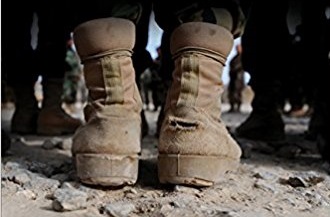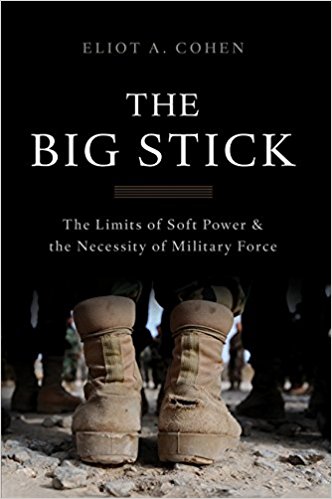By Jordan Cohen, January 31, 2018
Professor Eliot Cohen will be hosted by CSPS on February 8th, 2018 at 7pm to discuss his new book “The Big Stick.” If you are interested in attending, please RSVP here.
Common critiques of U.S. foreign policy argue for the reduction of an expansive military presence, and academics have also made this argument. In his book, Restraint, Barry Posen argues that the United States’ geographic location and economic strength allow it to be discriminant in wars it chooses to fight.
In his new book, The Big Stick: The Limits of Soft Power & the Necessity of Military Force, Eliot Cohen vehemently contradicts this argument. He argues the U.S. is facing four main threats that mandate increased military spending: China, Salafi Islam, revisionist states, and ungoverned spaces.
China’s threat comes in four forms: naval, cyber-espionage, strong land forces, and anti-access/area denial (A2/AD). Cohen argues that the latter is the most dangerous. China’s A2/AD weapons carry the goal of preventing foreign vessels at sea from entering waters near the country. These weapons may also restrict use of U.S. Forces positioned in bases in the region. In Cohen’s view these weapons can be countered, in part, by arming regional allies with comparable weapons. By arming its allies, and while also increasing its own defense spending, the U.S. will strengthen its alliances in the region, while also impeding China’s territorial ambitions.
Cohen warns of the persistent threat posed by Salafist Islam. Even as ISIS weakens, al-Qaeda is rebuilding, and it appears likely they will regain a foothold in the Levant. In his view, the U.S. should be most concerned about these organizations acquiring a nuclear weapon. To counter this, Cohen argues countries beset by the Salafist movement must boost the size of their militaries.
The rising power of revisionist states, including Russia, Iran, and North Korea threatens the U.S.-led international. Cohen explains that these nations are using trade policies to gain influence in the international system. Regarding Russia, Cohen argues for permanent deployed of U.S. forces in Eastern Europe for two reasons: first, to substantiate America’s alliance with these countries; and second, to prevent Russian expansion. Countering these revisionist states is important because they pose direct threats to U.S. interests across the globe. For example, Iran can risk an oil crisis, North Korea can start a war, and Russia has been vocal about their expansionist desires.
Finally, ungoverned spaces are also a threat in the modern international system. Academic literature suggests that failed states and ungoverned spaces are incubators of terrorism. Acknowledging this, Cohen argues that further developing cyberwarfare capabilities, territorial legitimacy, maritime units, and control over space is the best way to fight these threats. Thus, Cohen also posits for military renovation to fight tomorrow’s wars.
Overall, Eliot Cohen’s nuanced argument does not call for increased American soldiers around the globe. He is not even positing that all military spending should go to new recruits. However, Cohen does argue that U.S. military power needs to adapt to the modern system. In doing so, he contends that Washington will be able to protect the American-led world order.
Jordan Cohen is a PhD student in political science at the Schar School of Policy and Government at George Mason University. He holds a master’s degree in Middle East and Islamic Studies from the same university. His research interests include alliance politics, petroleum politics, the Arab Gulf, and international security. His work is published at The National Interest and Jadaliyya.
Disclaimer
The articles and other content which appear on the Center for Security Policy Studies website and social media posts are unofficial expressions of opinion. The views expressed are those of the authors, and do not reflect the positions of the Schar School of Policy and Government or of George Mason University.
The Center for Security Policy Studies does not screen articles to fit a particular editorial agenda, nor endorse or advocate material that is published. The Center for Security Policy Studies merely provides a forum for scholars and professionals to share perspectives and cultivate ideas. Comments on any digital outlet of the Center for Security Policy Studies will be moderated to ensure logical, professional, and courteous application to intellectual content.





